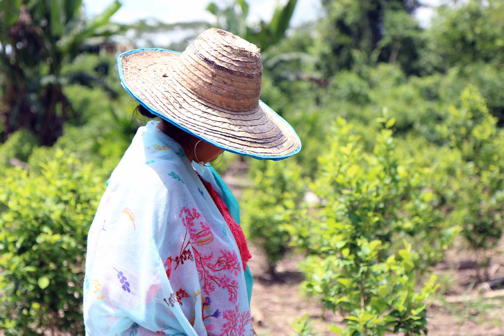
Women Coca and Poppy Growers Mobilizing for Social Change
February 28, 2020 - Original article: Washington Office on Latin America (WOLA)
by Teresa García Castro
Across Latin America, women who grow coca and opium poppy often play a major role in fighting for social change in their communities. However, the importance of their role as changemakers and political actors is often overlooked.
When women growers are made invisible, this impacts the effectiveness of public policies on both rural development and coca and poppy production. As outlined in a new report, Women Coca and Poppy Growers Mobilizing Women for Social Change, addressing the dearth of information about the social roles played by women growers and supporting women’s participation in political and public life is critical for the design of gender-sensitive policies that more positively benefit women growers and their communities.
Focusing on case studies in Bolivia and Colombia, the report explores how women growers act as agents of change, taking on critical roles in agrarian organizations, local assemblies, and other collectives. However, the marginalization of rural communities and the so-called “war on drugs” has rendered invisible women growers’ contributions to social movements. “Labeling them simply as ‘coca growers,’ or seeing them exclusively as people who engage in an activity declared to be illicit, obscures their standing as political actors,” the report states.
Women growers face significant obstacles in accessing greater political representation, in part because they face a triple stigma: because they are women, because they are rural farmers, and because their livelihood depends on an activity that has been declared illegal. In a series of recommendations, the report details how states can do much more to support the participation of women growers in political and public life: by creating spaces to learn about the realities facing women growers, eliminating barriers to participation in social movements, and ensuring women’s access to land titles and credits, among others.
The report was produced by the Washington Office on Latin America (WOLA), the International Drug Policy Consortium (IDPC), Dejusticia, and the Andean Information Network. It is the latest in a series of policy briefs examining ways to advance a more gender-sensitive approach to drug policy in Latin America. See previously released reports here.